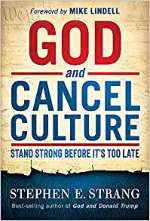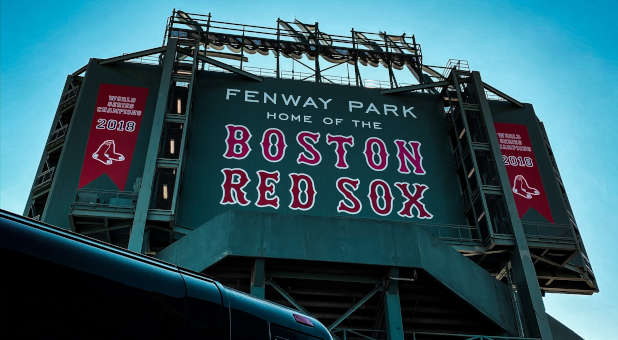Banned for Life: An Unforgiving Cancel Culture Is Overtaking Our Nation
The fan who hit Boston Red Sox left fielder Alex Verdugo with a baseball thrown from the Yankee Stadium stands has been banned for life from attending major league games.
Throwing a baseball, a bottle or even a rally-cap at a professional athlete is grounds for ejection from the stadium. This is obvious to all. The safety of everyone at sporting events, whether fans or players, is paramount. An appropriate response is demanded. Appropriate is the key word.
I’ll admit I am not privy to the specifics of this situation, so my remarks are going to be general. The “banned for life” movement is strong in America, and it’s driven by an all-to-familiar and vindictive cancel culture.
Banned for life? For throwing a baseball at someone?
The punishment for second-degree murder is often significantly less lengthy (though I’m not suggesting missing a lifetime of baseball games is in any way the same as going to prison). In fact, NJ.com reported Sunday the fan was not even arrested, though this may change after the facts are gathered. Be that as it may, throwing a baseball that caused no injury resulted in a life sentence by Major League Baseball without the possibility of parole.
A Nation Devoid of the Spirit of Forgiveness
ESPN reports, “Verdugo said he tossed the ball into the stands to a young Red Sox fan but that a Yankees fan intercepted it and threw it back onto the field, hitting the outfielder.”
As a Chicago Cubs fan, I’ve witnessed many home-run balls hit by the visiting team launched back from the bleachers onto the field. This is a long-standing tradition, one that is good for the sport. I’ve often seen the air-mailed baseballs soar past players, and I’ve often wondered if any of them have ever been hit. Granted, the velocity of a ball by the time it lands near the infield would be minimal.
Would this be cause for a lifetime ban? Of course not. Is it possible the situation with Verdugo was more deliberate and egregious? Yes. But, again, much greater crimes carry much shorter sentences. Major League Baseball Commissioner Rob Manfred, the punishment must fit the crime, and some might argue this situation barely even qualifies as a crime, if it does at all.
Reports of people being banned for life from theme parks and cruise ships for some extremely minor offenses are out there, and while I don’t diminish the need to hold people accountable, there must be a mechanism for penance and forgiveness. Sadly, we are living in a nation that is woefully lacking in the value of forgiveness. Instead, punishment, control, shame and judgment have become the norm in our society.
Banned for Life
According to CBS Sports writer Matt Snyder, Justice was served—the fan was banned from Yankee Stadium and the other 29 ballparks for life, an MLB spokesperson told NJ.com’s Brendan Kuty on Sunday.
Was justice truly served with a lifetime ban?
Except for the most extreme cases, the punitive term “banned for life” should disappear from our culture’s verbiage. Social media platforms also use similar terminology when deleting accounts. Often it’s unclear why people were banned as specifics are rarely shared. Even the offenders are often in the dark as to why they have punished and are given no path for restoration.
President Donald Trump was famously banned for life from Twitter. It’s so preposterous and inconceivable that our nation’s highest-ranking official could be muzzled.
Asked during an interview on CNBC, Segal stressed regarding Twitter’s decision to ban the president that permanent means permanent.
“The way our policies work, when you’re removed from the platform, you’re removed from the platform whether you are a commentator, a CFO or you are a former [president] or public official,” he said.
Vengeance instead of common sense, love and forgiveness is leading the charge today, and our nation is growing darker and more sinister by the hour.
Both President Trump and the culprit who foolishly threw the baseball are banned forever. Paul Hodgkins will serve eight months (or less) for joining a group of rioters who assembled at the front of the Senate chamber. His intention was to obstruct the certification of the 2020 Presidential election.
In fact, in another baseball-related story, the person (or people) responsible for shooting four people outside a Washington Nationals game the other day may very well receive sentences (should they be found and convicted) well short of a lifetime.
A Path of Restoration
No matter the violation, a path of restoration must always be extended, whether it’s by Major League Baseball, Facebook, theme parks or cruise ship companies. Simply slamming down the gavel and erasing someone without any opportunity for rehabilitation is cruel.
If you presume I’m dismissing wrong and hurtful actions, I’m not. Neither am I suggesting we look the other way and allow all sorts of inappropriate behavior. I’m saying there must be communication with the offender, an appropriate time-out or other measure to ensure people’s safety and then a clear path of restoration.
A lifetime ban is most situations is ludicrous, heartless and fully unnecessary.
Remember, people who have been convicted of all sorts of heinous crimes including drunk driving, manslaughter, bank robbery and other illegal actions are offered an appropriate sentence, usually with the possibility of parole. Their ban is not of the lifetime variety. Yet throw a baseball at someone or break some rules online or elsewhere, and the judgment is harsh, final and permanent.
Again, I’m not suggesting that an inability to post memes to social media or to hang out in the bleachers to cheer the Cubs on to another World Series title is in any way similar to being incarcerated. I’m simply making the point that greater crimes have a path of restoration built into the sentence. Today’s “banned for life” movement does not. When culture cancels you, it’s permanent.
The thought of being banned from seeing Major League baseball games with my children breaks my heart. One mistake, no matter how intentional it may be, should not qualify someone for permanent cancellation. Yet, that’s what we are seeing today. No love. No forgiveness. No path of restoration. No acceptance of apologies. No hope.
The result is a fear-based culture that cancels all who don’t comply to the letter of the law. This alone is resulting in a scary, judgmental and vengeful America that looks nothing like it did a couple decades ago. {eoa}
For the original article, visit burton.tv.
 For more information on how you can fight back against cancel culture, make sure to get a copy of what Charisma founder and CEO Stephen Strang says is his most important book yet. God and Cancel Culture releases Sept. 7, the day after Labor Day, wherever fine books are sold. Pre-order it at stevestrangbooks.com and, for a limited time, receive $120 worth of gifts, including four e-books and a subscription to Charisma magazine.
For more information on how you can fight back against cancel culture, make sure to get a copy of what Charisma founder and CEO Stephen Strang says is his most important book yet. God and Cancel Culture releases Sept. 7, the day after Labor Day, wherever fine books are sold. Pre-order it at stevestrangbooks.com and, for a limited time, receive $120 worth of gifts, including four e-books and a subscription to Charisma magazine.
John Burton has been developing and leading ministries for over 25 years and is a sought-out teacher, prophetic messenger and revivalist. He ministers in churches and at camps and conferences throughout the nation. John has authored 10 books, is a regular contributor to Charisma magazine, has appeared on Christian television and radio and directed one of the primary internships at the International House of Prayer (IHOP) in Kansas City. Additionally, he has planted two churches and has initiated two city prayer movements and a school of ministry.





























